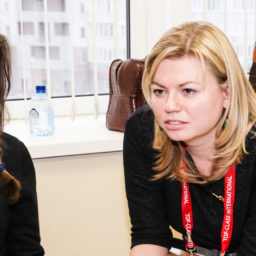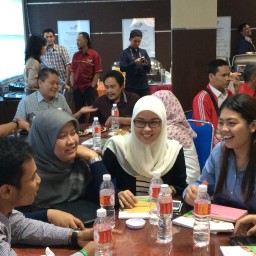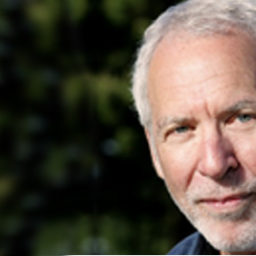
The power to create a future requires us to choose to be accountable. To be accountable, among other things, means you act as an owner and part creator of whatever it is that you wish to improve. In the absence of this, you are in the position of effect, not cause … a powerless stance. To be accountable is to care for the well being of the whole … | Peter Block Continue reading Choose to Be Accountable Peter Block

Ownership is when you own or share the ownership of an idea, a decision, an action plan, a choice. It means that you have participated in its development; that it is your choice freely made. Buy-in is the exact opposite. Someone else, or some group of people, has done the development, the thinking and the deciding, and now they have to convince … | Engaging Everyone with Liberating Structures Continue reading Ownership Not Buy-in Group Jazz

A new future is created when each gathering (or meeting) becomes an opportunity to deepen accountability and commitment through engagement. It doesn’t matter what the stated purpose of the gathering is. Each gathering serves two functions: (1) to address its stated purpose and (2) to be an occasion for each person to decide to become engaged as an … | Peter Block Continue reading A Gathering Serves Two Functions Peter Block

The Jazz of Conversations Why Face-to-face Interaction Matters ** Close Pop-up all posts in this chapter What’s the Vibe? Please be patient as this may take up to a minute to load… Close Meetings or, more generally, conversations serve two purposes. The first is obvious, and that is to fulfill their aim. The second is less … Continue reading Meetings and Conversations Serve Two Purposes There is a second purpose to any meeting which we often overlook

Introduction: Principles of Conversational Leadership II. Embrace Complexity Close Pop-up all posts in this chapter What’s the Vibe? Please be patient as this may take up to a minute to load… Close Take responsibility: In life, we can choose to take responsibility in several ways. Most critically, we can choose to take ownership of the … Continue reading I. Take Responsibility We need to take responsibility for the changes we wish to see in the world

Strategic Conversations The Role of the Knowledge Café in Open/adaptive Strategy Close Pop-up all posts in this chapter What’s the Vibe? Please be patient as this may take up to a minute to load… Close Strategic planning is evolving, with new approaches that are more inclusive and adaptable. Traditional, closed strategies limit employee involvement, leading … Continue reading Open, Adaptive Strategy Make employees partners in the strategy process

One of the most significant mistakes we often commit when striving to initiate change is trying to enforce things upon others. Continue reading Ownership, Not Buy-in We need to move from buy-in to ownership

Punished by Rewards We Need to Stop Trying to Do Things to Each Other Close Pop-up all posts in this chapter What’s the Vibe? Please be patient as this may take up to a minute to load… Close We use the words responsibility and accountability loosely in everyday language, but what’s the difference? We take responsibility but … Continue reading The Difference Between Responsibility and Accountability We take responsibility but are held accountable

The Difference Between Responsibility and Accountability Introduction: Motivation and Engagement ** Close Pop-up all posts in this chapter What’s the Vibe? Please be patient as this may take up to a minute to load… Close To encourage engagement and ownership, we must stop trying to do things to each other. People often ask me, “How … Continue reading We Need to Stop Trying to Do Things to Each Other And start working together

Are There Any Questions? Let’s Get Rid of Lecterns Close Pop-up all posts in this chapter What’s the Vibe? Please be patient as this may take up to a minute to load… Close How many people at a conference or a workshop genuinely engage with the day and consider they are as much an owner … Continue reading Peter Block’s Four Ownership Questions Are you prepared to take responsibility for the learning and engagement of others?








